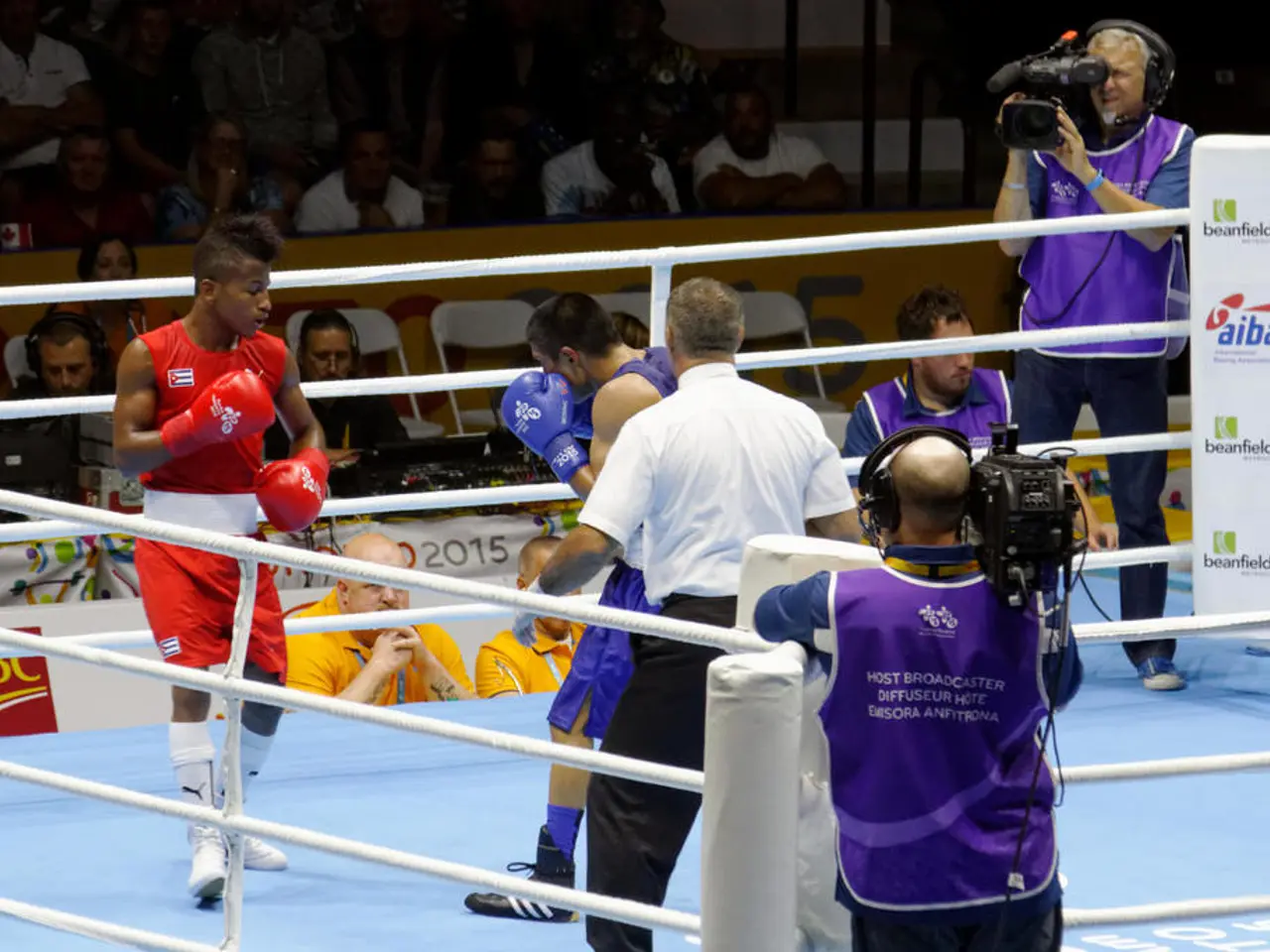Tokyo Boxing Event Tragedy: Brain Injuries Result in Two Boxers' Deaths
In the tragic aftermath of the deaths of two Japanese boxers, Shigetoshi Kotari and Hiromasa Urakawa, who both succumbed to brain injuries sustained during fights on August 2, 2025, the Japan Boxing Commission (JBC) and Japan Pro Boxing Association have announced stricter safety regulations to prevent such incidents in future bouts.
Key recent safety regulations include:
- Reduction of title fight rounds: All Oriental and Pacific Boxing Federation (OPBF) title fights held in Japan, as well as WBO Asia Pacific title bouts, will now be shortened from 12 rounds to 10, aiming to reduce physical strain on fighters.
- Pre-bout urine tests: To measure dehydration levels, pre-bout urine tests will be introduced, as severe dehydration from rapid weight cutting is considered to increase susceptibility to brain bleeding like subdural hematomas.
- Stricter rules on weight loss and weight-cutting practices: New rules will be enforced to prevent dangerous rapid weight reduction before fights, a known risk factor for brain injuries during bouts.
- Mandatory presence of ambulances and readiness of hospitals for emergency surgery: At all boxing events, ambulances will be required, and hospitals will be prepared for emergency surgery to provide immediate treatment for head and other injuries.
- Emergency meeting and ongoing investigations: An emergency meeting involving medical experts, gym leaders, and amateur boxing officials will take place, with ongoing investigations to refine safety protocols and share preventive guidance.
Tsuyoshi Yasukochi, secretary-general of the JBC, emphasized that these measures aim to ensure the tragic deaths are not in vain and to prioritize boxer safety going forward.
These changes come amid increased scrutiny on boxing safety following multiple deaths in Japan in less than two years. Urakawa, also 28, died after suffering the same type of brain injury during a knockout loss to Yoji Saito. Last year, Irish boxer John Cooney died a week after being hospitalized following his Celtic super-featherweight title defeat to Nathan Howells in Belfast. He had suffered a severe brain injury during the bout.
The World Boxing Council confirmed that Kotari's death was directly linked to injuries sustained during the bout, while the WBO paid tribute to Kotari on social media, describing him as a "warrior in the ring" and a "fighter in spirit."
The tragic incidents have reignited debate over boxing safety regulations in Japan, particularly the duration of fights and ringside medical protocols. Advocates are demanding shorter fight durations, mandatory post-fight medical scans, and stricter enforcement of concussion protocols. The call for tighter oversight of boxing, both in Japan and internationally, has been gaining momentum.
- Aiming to reduce the physical strain on fighters and prevent brain injuries, new international safety regulations will shorten Oriental and Pacific Boxing Federation title fights to 10 rounds, including WBO Asia Pacific title bouts.
- The World Boxing Council and other international organizations have been urged to support stricter boxing safety regulations worldwide, following the tragic deaths of Shigetoshi Kotari and Hiromasa Urakawa and the increasing concerns about boxing safety in Japan.







